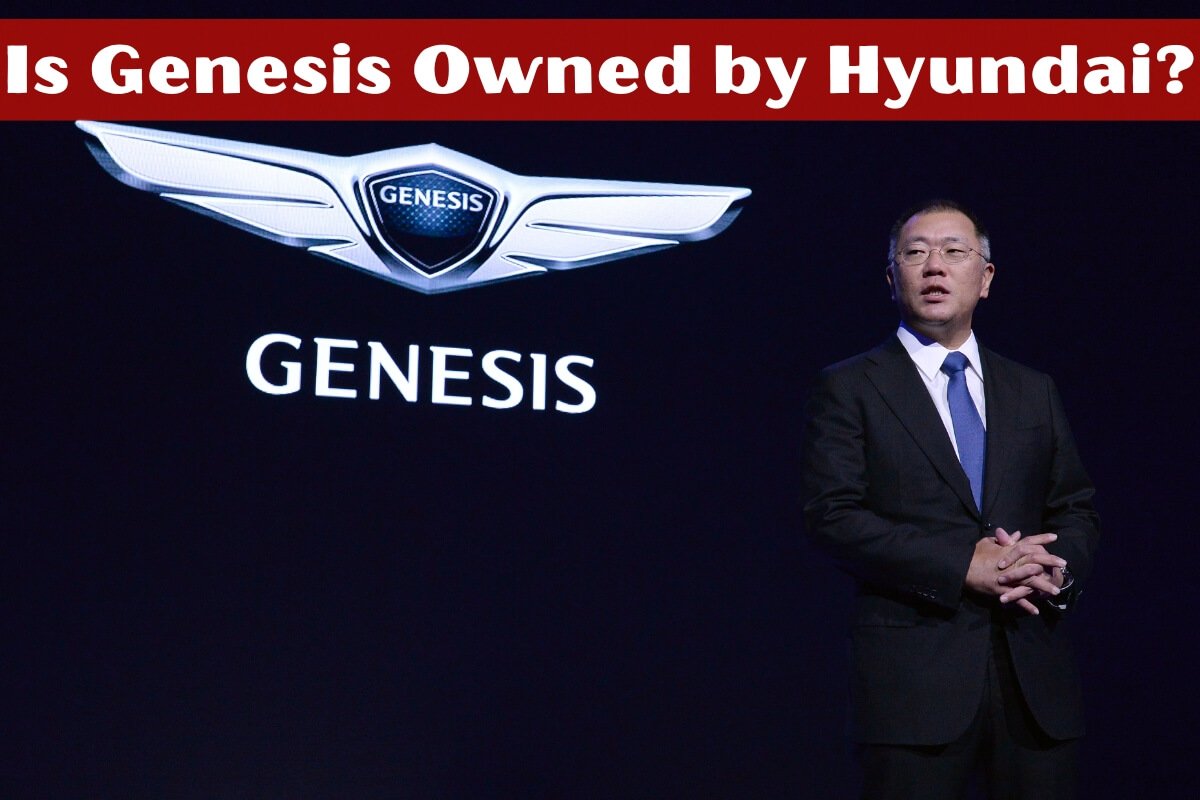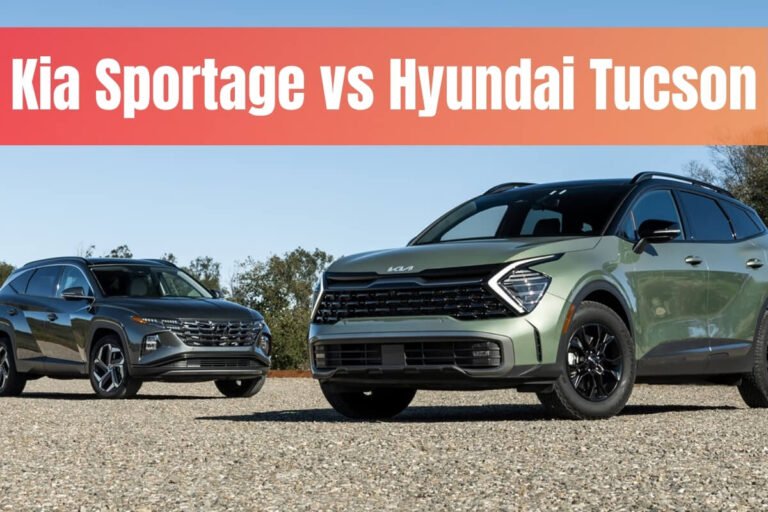Is Genesis Owned by Hyundai? The Truth About This Luxury Brand

In recent years, the luxury car market has welcomed a fresh face that’s been turning heads with its sleek designs, premium amenities, and impressive performance: Genesis. This upstart brand has quickly established itself as a legitimate contender, going toe-to-toe with established luxury giants like BMW, Mercedes-Benz, and Lexus.
However, one question that often arises among car enthusiasts and potential buyers is: Is Genesis owned by Hyundai?
The short answer is yes, Genesis is a luxury vehicle division owned by Hyundai Motor Group, the South Korean automotive conglomerate.
But the relationship between these two brands is more nuanced than a simple ownership structure. In this comprehensive guide, we’ll dive deep into the origins of Genesis, its transition from a Hyundai model to a standalone luxury marque, and how it differs from its parent company while still benefiting from Hyundai’s resources and expertise. We’ll also explore the current Genesis lineup, its manufacturing facilities, and the brand’s future plans for electrification and global expansion.
The Birth of Genesis: From Hyundai’s Flagship to an Independent Brand
Before becoming its own distinct luxury brand, Genesis had humble beginnings as Hyundai’s flagship sedan model. Introduced in 2008, the Hyundai Genesis was a rear-wheel-drive luxury sedan that aimed to compete with established players in the premium vehicle segment.
The Genesis model was an immediate success, earning praise for its upscale features, refined driving experience, and value proposition. Its popularity prompted discussions within Hyundai about whether to spin off Genesis as a separate luxury brand or keep it as a high-end Hyundai model.
Ultimately, the decision was made to create an independent Genesis brand. In November 2015, Hyundai officially announced the launch of Genesis as a standalone luxury marque, with the first Genesis-branded vehicle hitting the market in 2017: the Genesis G90 sedan.
Who Owns Genesis Cars?
While Genesis operates as a separate luxury vehicle division, it is ultimately owned by Hyundai Motor Group, the South Korean automotive conglomerate that also owns the Hyundai and Kia brands.
By establishing Genesis as an independent marque under Hyundai’s umbrella, the company aimed to provide a distinct luxury experience while leveraging Hyundai’s extensive resources, technologies, and manufacturing expertise.
This strategic move allows Genesis to focus solely on developing high-end vehicles and delivering a premium experience to its customers, without being constrained by Hyundai’s more mainstream offerings.
The Genesis Lineup: Sedans, SUVs, and Electric Vehicles
Since its inception, the Genesis brand has steadily expanded its lineup to include a range of luxury sedans, SUVs, and even electric vehicles. Here’s a closer look at the current Genesis model lineup:
Sedans
- G70: Genesis’ compact luxury sedan, positioned as a competitor to the BMW 3 Series and Mercedes-Benz C-Class.
- G80: The midsize luxury sedan, offering a blend of performance, comfort, and advanced tech features.
- G90: Genesis’ flagship full-size luxury sedan, designed to rival the likes of the Mercedes-Benz S-Class and BMW 7 Series.
SUVs
- GV70: Genesis’ compact luxury SUV, combining sleek styling with impressive performance and a premium interior.
- GV80: The midsize luxury SUV offering, boasting a spacious cabin, cutting-edge tech, and powerful engine options.
Electric Vehicles
- GV60: Genesis’ first dedicated electric vehicle, a compact luxury crossover built on a dedicated EV platform.
Across its lineup, Genesis vehicles are known for their sleek and sophisticated designs, premium interiors with high-end materials and features, and a focus on delivering a refined and engaging driving experience.
How Does Genesis Differ from Hyundai?
Although Genesis is owned by Hyundai Motor Group, the two brands have distinct identities and target different segments of the automotive market.
While Hyundai caters to a broader range of consumers with its mainstream and performance-oriented vehicles (such as the N Line models), Genesis is solely focused on the luxury market. This means that Genesis prioritizes premium materials, upscale features, and a heightened sense of luxury and comfort across its lineup.
Furthermore, Genesis and Hyundai maintain separate design philosophies and manufacturing processes. Genesis vehicles are designed with a more understated and elegant aesthetic, while Hyundai models often feature bolder and more expressive styling.
Despite these differences, Genesis benefits significantly from being part of the Hyundai Motor Group. This affiliation provides Genesis with access to Hyundai’s vast resources, cutting-edge technologies, and established manufacturing facilities and expertise.
The Advantages of Being Part of Hyundai Motor Group
While Genesis operates as an independent luxury brand, its ownership by Hyundai Motor Group offers several key advantages:
- Access to Resources and Expertise: As a subsidiary of Hyundai, Genesis can leverage the parent company’s extensive resources, including research and development, engineering capabilities, and manufacturing facilities.
- Cost Savings through Shared Platforms: Genesis models often share platforms and components with their Hyundai and Kia counterparts, allowing for cost savings that can be passed on to customers through competitive pricing.
- Reputation for Quality and Value: Hyundai has built a reputation for producing high-quality vehicles that offer exceptional value for money. This reputation carries over to Genesis, helping to establish the brand’s credibility in the luxury market.
- Global Reach and Infrastructure: Hyundai’s established global presence and infrastructure provide Genesis with a strong foundation for expanding its reach into new markets worldwide.
Genesis vs. Other Luxury Brands
While Genesis may be a relative newcomer to the luxury car scene, it has quickly positioned itself as a legitimate competitor to established premium brands like BMW, Mercedes-Benz, and Lexus.
One of Genesis’ key strengths is its value proposition: the brand offers vehicles that are comparable in quality, features, and performance to their German and Japanese rivals, but often at a more accessible price point.
Additionally, Genesis models have received numerous industry accolades and recognition, further solidifying the brand’s position as a formidable player in the luxury market. For instance, the Genesis G70 has been praised for its impressive driving dynamics, earning it awards such as the MotorTrend Car of the Year.
Where Are Genesis Cars Made?
While Genesis benefits from Hyundai’s global manufacturing footprint, the majority of Genesis vehicles are produced at the company’s primary manufacturing facility in Ulsan, South Korea.
However, Genesis also has design centers located in strategic locations around the world, including:
- Namyang, South Korea
- Rüsselsheim, Germany
- Irvine, California, USA
These design centers allow Genesis to draw inspiration from various cultural influences and incorporate global design trends into their vehicles.
Looking ahead, Genesis has plans to expand its production footprint beyond South Korea. In particular, the brand has announced plans to build a dedicated manufacturing facility in Alabama, USA, which will produce future Genesis models for the North American market.
The Future of Genesis: Electrification and Global Expansion
As Genesis continues to solidify its position in the luxury car market, the brand has outlined ambitious plans for the future, with a strong focus on electrification and global expansion.
Electrification
Genesis has made a commitment to introducing a range of electric and hybrid vehicles, aligning with the broader industry trend toward electrification. The brand’s first dedicated electric vehicle, the GV60 crossover, hit the market in 2022, with more electrified models expected to follow.
Additionally, Genesis has introduced “Electrified” variants of its existing models, such as the Electrified G80 sedan, which combine traditional gasoline engines with electric motors for improved efficiency and performance.
Global Expansion
While Genesis has established a strong presence in key markets like South Korea, the United States, and parts of Europe, the brand has ambitions to expand its global reach further.
This includes targeting emerging luxury car markets in regions like China, Southeast Asia, and the Middle East, where the demand for premium vehicles is on the rise.
To support this global expansion, Genesis is investing in building a more extensive network of dealerships and service centers, ensuring that customers around the world can access the brand’s offerings and receive a consistent, high-quality customer experience.
In Summary
While Genesis is indeed owned by Hyundai Motor Group, it has successfully carved out a distinct identity as a luxury automotive brand in its own right. From its humble beginnings as a Hyundai flagship model to its current lineup of sophisticated sedans, SUVs, and electric vehicles, Genesis has proven itself as a formidable contender in the luxury market.






